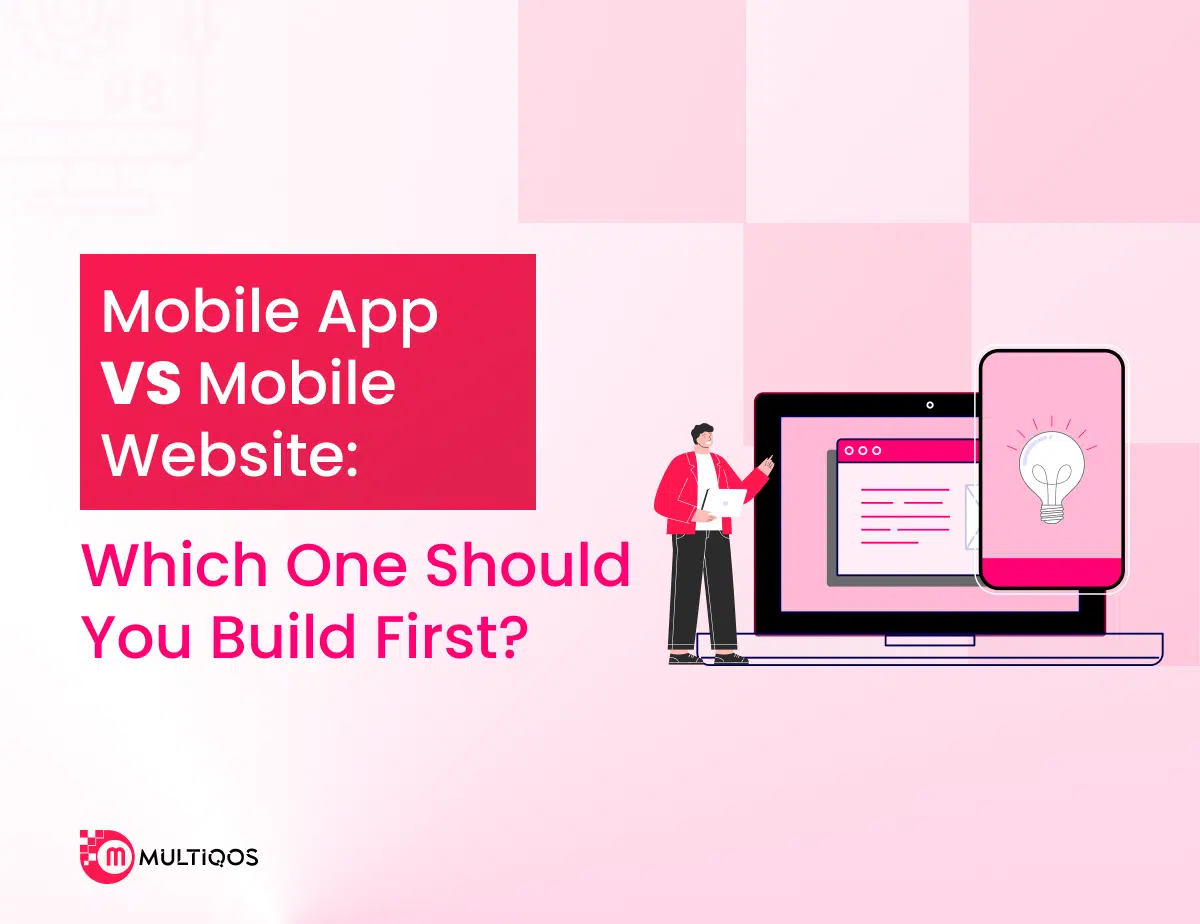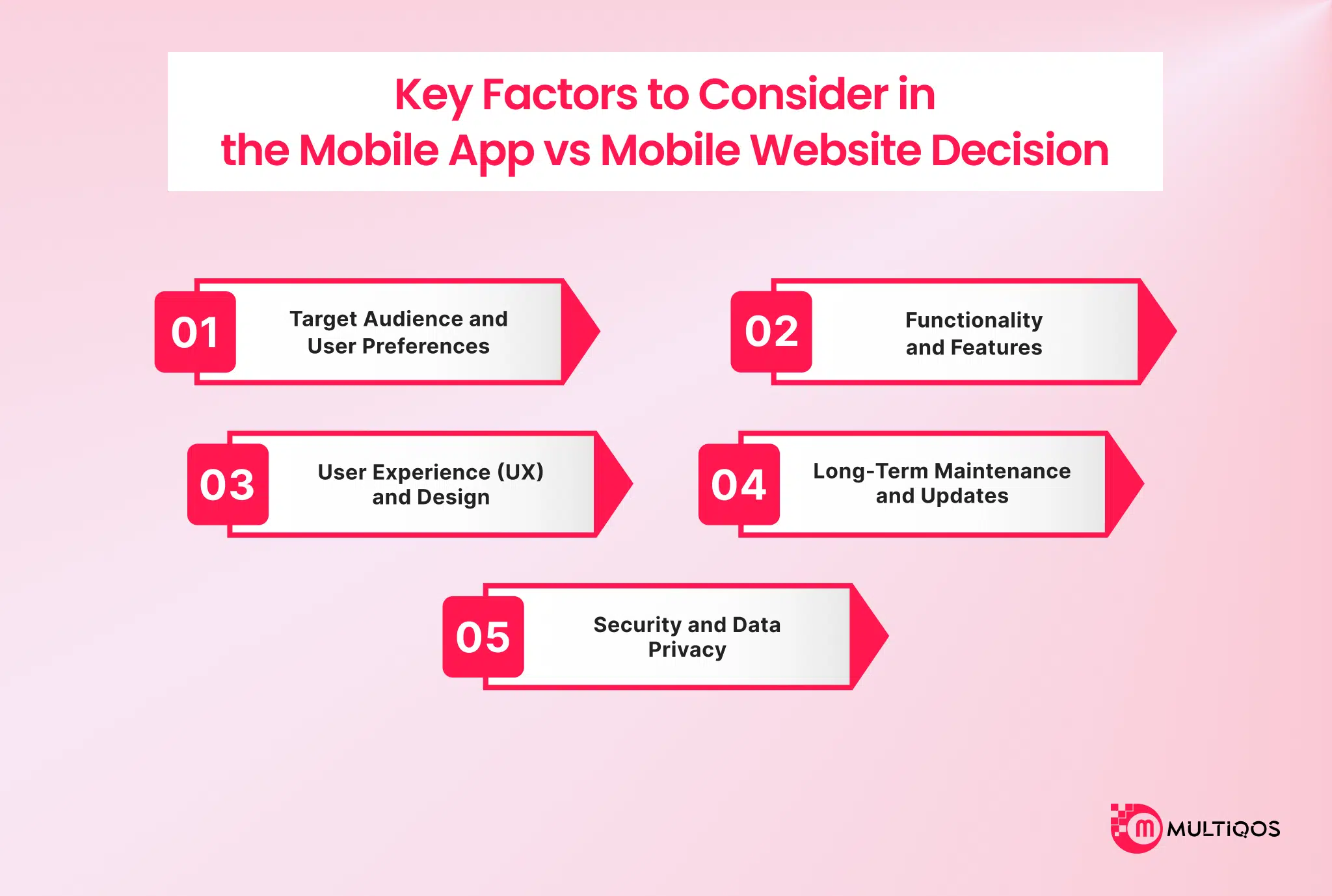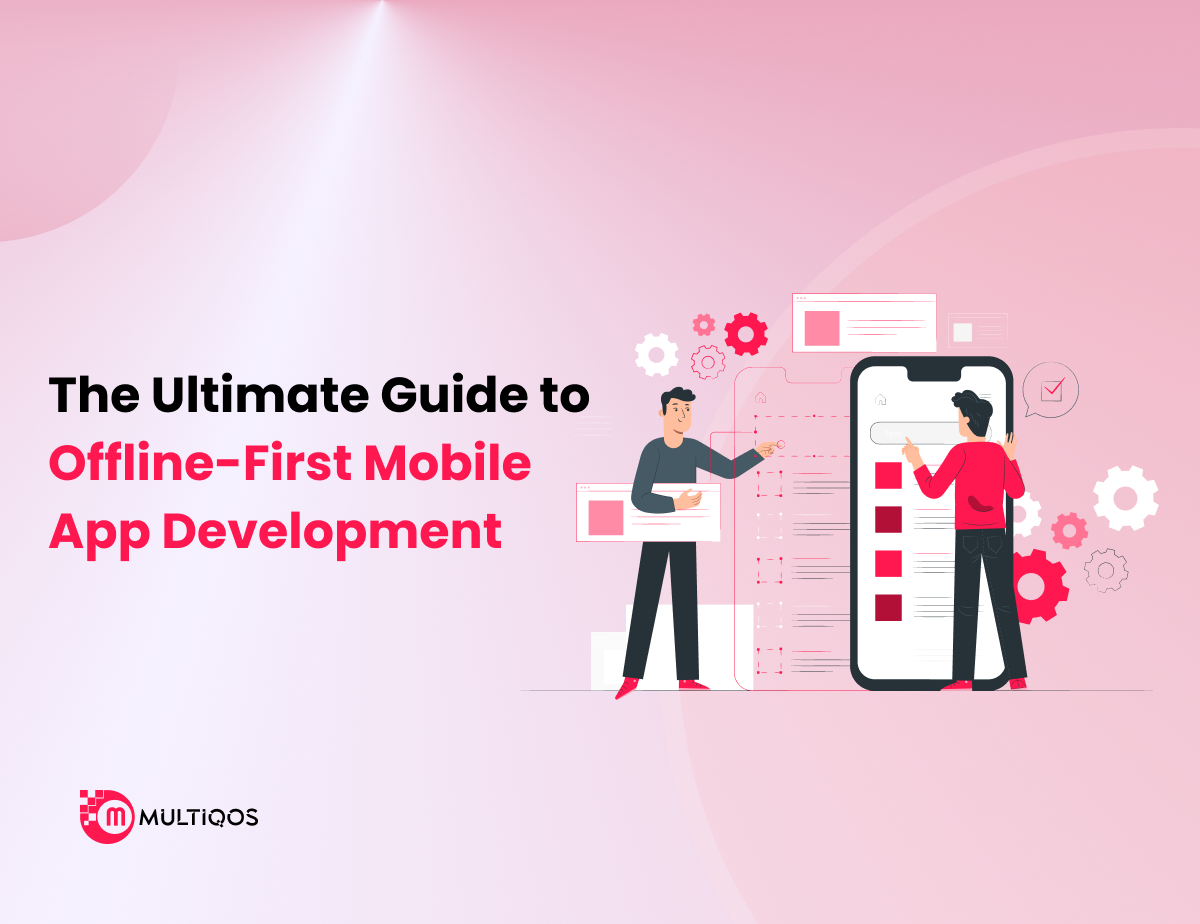Mobile App vs Mobile Website: Which One Should You Build First?

Summary :
When deciding between a mobile app vs mobile website, it’s essential to consider your goals, budget, and user needs. A mobile website is more affordable, easier to update, and accessible across all devices, making it ideal for reaching a wider audience quickly. In contrast, a mobile app offers better performance, personalization, and offline capabilities, which are perfect for enhancing user engagement and loyalty.
For startups or businesses seeking visibility and flexibility, starting with a mobile website is often the smarter move. As your audience grows, investing in a mobile app can provide added value and deeper interaction.
Introduction
As mobile usage continues to grow, companies must make an important decision between mobile app vs mobile website. If you are a startup, you may be unsure whether to develop a mobile app or a mobile website. Although both provide a wide range of benefits and features, the right choice highly depends on your business goals, available resources, and target audience.
Mobile apps provide a more individual and immersive experience, but come with high growth costs and maintenance. On the other hand, mobile websites are scalable, more cost-effective, and easy to access on all devices, but may lack deep participation in the app offer.
In this blog, we will break down the significant difference between a mobile app and to mobile site to help you decide which one is the best option to start your mobile strategy. Dive into the details!
Defining Mobile App vs Mobile Website
We all know that the usage of mobile phones is continuously increasing, and with this, comparing mobile app vs mobile website becomes an important decision to make for companies to serve their goals. While these two serve the business goals, they might vary when it comes to design, user experience, and functionality.
What is a Mobile App?
A mobile app is a software specially designed to run on smartphones and tablets. Users need to download and install the app from the App Store, like Google Play or Apple App Store. Mobile applications can be developed for a specific platform (iOS or Android) or developed using a platform tool to work with multiple systems.
Key Features of Mobile Apps:
- Device hardware accessibility (camera, GPS, notifications, etc.)
- Often work offline or with limited connectivity
- Customizable user experience
- Better performance and faster interactions
If you are looking for a platform that provides a visually appealing, interactive, and responsive experience, then mobile apps can be a great option as they align with your targeted users.
What is a Mobile Website?
A mobile site is a version of a customized website in order to view mobile devices. It moves in a mobile browser and requires no installation. Most mobile networks use responsible design to automatically adjust the layout and materials depending on screen size.
Key Features of Mobile Websites:
- Accessible from any device with a web browser
- No need to download or install
- Easier to update and maintain
- Better for SEO and discoverability
If you are a newbie, have a limited budget for development, but want extensive access, you can go with mobile website development, especially for data-driven platforms. Whether you choose to develop a website or an app, your selection criteria should be based on your business goals, development cost, and the audience that you are targeting.
If you are still confused, one of the best options is to partner with a reliable mobile app development company that will help you make the right decision. They can help you choose the right option based on your requirements and objectives, and also help you create a cutting-edge solution to maximize commitment and growth.
Key Factors to Consider in the Mobile App vs Mobile Website Decision
By deciding whether to invest in a mobile app or a mobile site for your company or service, there are many important weight factors. Each option provides unique benefits and challenges, and your decision should be based on your specific requirements, goals, and resources. Below are important factors to consider when making this decision:
1. Target Audience and User Preferences
Understanding your target audience is important when it comes to choosing between a mobile app and a mobile site.
- Mobile apps are ideal if the audience often uses mobile devices and expects an interactive, personal experience. Apps are particularly suitable for companies where users regularly interact, such as social platforms, games, or lifestyle services.
- On the other hand, mobile websites, regardless of the device, are available to anyone with a browser and an internet connection. They are better for users who do not necessarily require frequent interactions, but require access to information when going to news sites or company sites.
2. Functionality and Features
When it comes to the range of functionality that you want to introduce, mobile apps and mobile sites vary greatly.
- Mobile apps provide rich functionality, including device hardware, access to offline and access to push notifications. Apps also have more interactive experiences and the ability for deep personalization, which can help users to engage more efficiently.
- When it comes to mobile websites, the devices are more limited in reaching hardware and provide offline capacity. However, they are perfect for providing stable materials, displaying services, or offering e-commerce functionalities. Websites can also use functions such as geolocation, but they cannot match the integration app level.
3. User Experience (UX) and Design
User experience can vary greatly between apps and websites, which affects the user’s satisfaction and engagement.
- Mobile apps offer more control of design and can provide a smooth, more polished user experience. Because apps are designed for specific devices, they can provide better performance, fast load time, and a more native experience.
- While modern responsive mobile websites can look good and provide a decent user experience, they are still dependent on browsers and are subject to slow loading times. Although mobile sites may be well designed, the overall experience cannot feel as comfortable as a native app.
4. Long-Term Maintenance and Updates
Maintenance is a continuous cost that you should factor in before making the decision. Both mobile apps and websites require regular updates and bug fixes, but they vary in how many times these updates need to roll out.
- Regular mobile app updates for compatibility with bug fixes, new features, and changes in the operating system are required. You need to send the update to the App Store or Google Play, and users must download it manually. It adds an extra layer of effort and time.
- A mobile website is very easy to maintain. The update can be reflected quickly and immediately for all users, without the need for action from them. They are less dependent on specific OS updates and can be updated more often.
5. Security and Data Privacy
Ensuring user data security and respecting privacy is an important idea when choosing between a mobile app and a mobile site.
- Mobile apps offer stronger security options, such as biometric authentication and device-level security. However, apps must allow users, which can increase privacy considerations.
- Mobile websites are generally less secure than apps, but can still implement strong security measures, like HTTPS. They don’t require user permissions, which can alleviate privacy concerns but may still be vulnerable to external threats.
Pros and Cons of Mobile Apps
Pros of Mobile Apps:
- Enhanced User Experience: Apps provide a smoother, more intuitive experience and utilize device features like GPS and camera.
- Offline Functionality: Apps work without internet, allowing users to access content and features offline.
- Push Notifications & User Engagement: Push notifications keep users engaged with updates, promotions, and alerts.
- Better Performance & Speed: Apps are optimized for devices, offering faster load times and smoother performance.
Cons of Mobile Apps:
- High Development and Maintenance Costs: Separate development for iOS and Android increases costs and maintenance efforts.
- App Store Approval & Discoverability: Getting approval and standing out in app stores can be challenging.
- User Installation Barriers: Users must download and install the app, which can deter some from adopting it.
Pros and Cons of Mobile Website
Pros of Mobile Website:
- Universal Accessibility: Accessible on any smartphone or tablet without the need for downloads, reaching a broader audience.
- Lower Development Costs & Faster Time to Market: A Single codebase for all devices reduces costs and speeds up development.
- Easier Updates and Maintenance: Updates are immediate and don’t require user action, ensuring the site is always up-to-date.
- SEO and Discoverability: Mobile websites can be indexed by search engines, boosting visibility and organic traffic.
Cons of Mobile Website:
- Limited Offline Functionality: Requires an internet connection; offline access is limited compared to mobile apps.
- Slower Performance: Mobile websites can be slower and less responsive due to browser and network limitations.
- Less Personalized User Experience: Mobile websites can’t offer the same level of personalization or features (like push notifications) as native apps.
When to Opt for a Mobile App vs Mobile Website
As businesses develop, they depend on choosing between mobile apps and mobile sites of their specific goals and user needs. Understanding the strength of each platform will help you make an informed decision. As the future of mobile app development is moving rapidly, the right choice can increase the user experience and streamline business operations.
When to Choose a Mobile App:
- Need for High Performance: If your service requires complex features, such as games, real-time treatment, or rich media, a mobile app is ideal for providing a smooth, sharp, and more responsive user experience.
- Offline Access: For apps that need to work without an Internet connection, such as media streaming, navigation, or note-taking, an app is necessary to provide access offline.
- Frequent User Engagement: When you need to keep users connected to information, reminders, or personal content, a mobile app is a better option, with more information and more and more users thanks to the interaction.
- Integration with Device Features: If your service requires access to indigenous features such as camera, GPS or sensor, a mobile app can fully integrate them and increase the user experience.
When to Choose a Mobile Website:
- Wide Accessibility: When you need to access wide target groups on different devices and platforms, a mobile site ensures compatibility without download or installation.
- Lower Development Costs: If budget and time shortages are a concern, a mobile website provides a sharp and cheaper solution than the costs associated with developing separate apps for iOS and Android.
- SEO and Discoverability: A mobile site is more searchable through the search engine, which helps you attract organic traffic, which is important for companies that focus on improving visibility online.
- Frequent Updates: If you provide or give your content, you often change it and you need to update it regularly. A mobile site is easy to maintain and update for users without the need to update anything manually.
Conclusion
When you decide between the mobile app vs mobile website, it eventually comes down to business goals and user needs. A mobile app is ideal to offer an individual, immersive experience with features such as offline access and push notifications, but it requires more investment in growth and maintenance. On the other hand, a mobile site is more cost-effective, available on all devices, and easy to update, although it may lack the deep engagement provided by an app.
For the best decision, you should consider factors as target groups, available resources, and long-term purposes. If you choose to create an app, make sure you hire mobile app developers to create a spontaneous experience of high quality. Finally, the right choice will depend on your unique business strategy and how you want to contact the audience.
FAQs
Yes, mobile apps usually work faster when designed to run on the device using local resources. Mobile websites, while working quickly with good internet, rely on a browser and can slow down due to external factors such as server delay and connection quality.
Developing mobile apps can be more expensive to develop mobile apps due to platform-specific development (iOS, Android) and regular updates. Mobile websites are affordable to develop, as they can be made using normal web technologies and maintained in one place.
Mobile websites are usually more cost-effective to develop because they do not require platform-specific coding (iOS/Android). Apps often require individual growth for different platforms and require regular updates, which increases long-term costs. However, if you need deep functionality of the mobile app, it can make the extra expenses worthwhile.
It depends on your business requirements. A mobile site can change an app for simple browsing or information-based services, but the original app (eg, required for offline games or apps) cannot provide the same user experience. However, a progressive web app (PWA) can bridge this difference by offering experiences such as apps without the need for download.
Get In Touch







